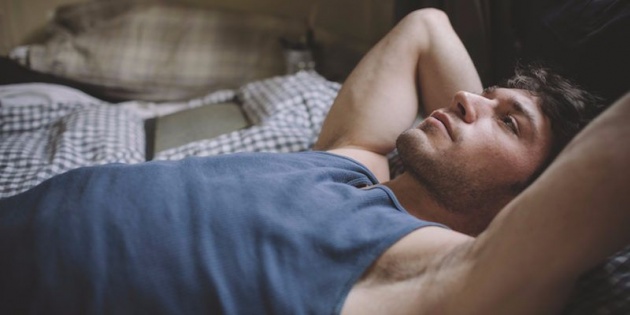
There’s an old episode of “Seinfeld” that I feel personally connected to.
Actually, there are many more than just one — but I feel a very special connection to this one episode in particular.
The episode deals with a world class runner — Jean Paul — who was staying with Elaine in NYC, prior to running in the New York City marathon. On the night before the race, Kramer assures Jean Paul that he’ll give him a wake-up call at 6:30 am sharp because he has “mental alarm clock.”
According to Kramer, our bodies have “internal mechanisms” that allow us to know what time it is even when we’re in a deep sleep. And while this concept may sound humorous — and surely leads to the downfall of the episode — it’s also one I can kind’ve relate to.
Very rarely do I wake up to an alarm clock. It’s mesmerizing.
If I know I have a big morning coming up, it’s uncanny. I’ll usually find myself waking up — on my own — about 15 minutes before my alarm clock was set to go off. Why? I’m not really sure. But I’ve always reckoned there was some subconscious internal mechanism — similar to the one Kramer was describing — that was responsible.
But I’m a rarity among my friends.
I live with two guys who I went to college with, and for as long as I’ve known them, waking up, for them, has always been a chore. Back at school, I’d be up for hours — watching match after match of Premier League football on early Saturday mornings — and by the time 2 pm rolled around, they’d just be wiping the sh*t out of their eyes.
If not for alarm clocks, they’d never be able to wake up for work. But, with me, I guess I’ve just always been blessed with a decent “mental alarm clock.”
According to Popular Science, there actually is a great deal of validity to Kramer’s claims, ludicrous as they may have sounded on sitcom television. As Jessica Cheng writes, “your [body] clock is controlled by the suprachiasmatic nucleus, a part of the brain that controls the body’s biological rhythms.”
However, the difficulty with late risers is their own bodily rhythms don’t align with their daily agendas. For the people who find it being a daily struggle crawling out of bed at the sound of their 7:45 am alarms, it’s probably that their bodily rhythms naturally prime them to start their day at a later hour.
This is known as something called “phase delay.”
While phase delay might be a somewhat detrimental condition to deal with when waking up for a job on Wall Street, it’s not to say it cannot be adjusted. People who deal with phase-delayed body clocks can proactively try and adjust their sleep cycle — however, as Cheng explains, a full amount of commitment is necessary for this.
For example, if you’re required to wake up for work before eight — five times during the week — you can’t allow yourself to reverse this habit by sleeping in on the weekends. Although it would only be two mornings out of the seven-day week that you’d be practicing bad habits, it’s still enough to reverse any positive progress you’ve made in adjusting your phase-delayed sleep pattern.
That being said, there are other factors that play roles in why certain people find waking up early to be a far easier task than others.
As Alice Park explains, “Some people’s brains are better than others’ at blocking the constant incoming flow of environmental stimuli during sleep,” and in turn, this makes certain types of people more inclined to sleep later than others.
According to Park, one of the most common contributors to interrupted sleep is the presence of ambient sound. Ambient sound refers to most types of background noises, but with regard to sleep, likely deals with things like air conditioning and television volume.
While you might not be fully cognizant of these sounds while you are sleeping, they certainly play a role in your ability to sleep deeply.
People who wake up earlier — and without as much resentment — probably are exposed to more ambient sound throughout their nights, which allows them to never fully reach deep sleep. So while people who consider themselves to be morning people, like myself, may feel as though we’re lucky to not wake up to an alarm clock, it’s important to consider the expense at which we rise.
Sure, we’re not traumatized by the prospect of waking up early. It’s also a possibility that we might not be getting a great night of sleep, either. So it’s important to make sure your ability to wake up early arrives as a result of good habits and not poor sleep.
So, if you’re a morning person, just make sure your sleep isn’t being cut short because of things like ambient noise. If that’s the case, it’s best to find a way to achieve deeper sleep while still maintaining your good morning habits. On the other hand, if you’re the type of person who won’t wake up until the middle of the day, without the help of an alarm clock — make sure you’re fully committing yourself to waking up early.
This means seven days a week. No snooze button.
Well, maybe just once.



